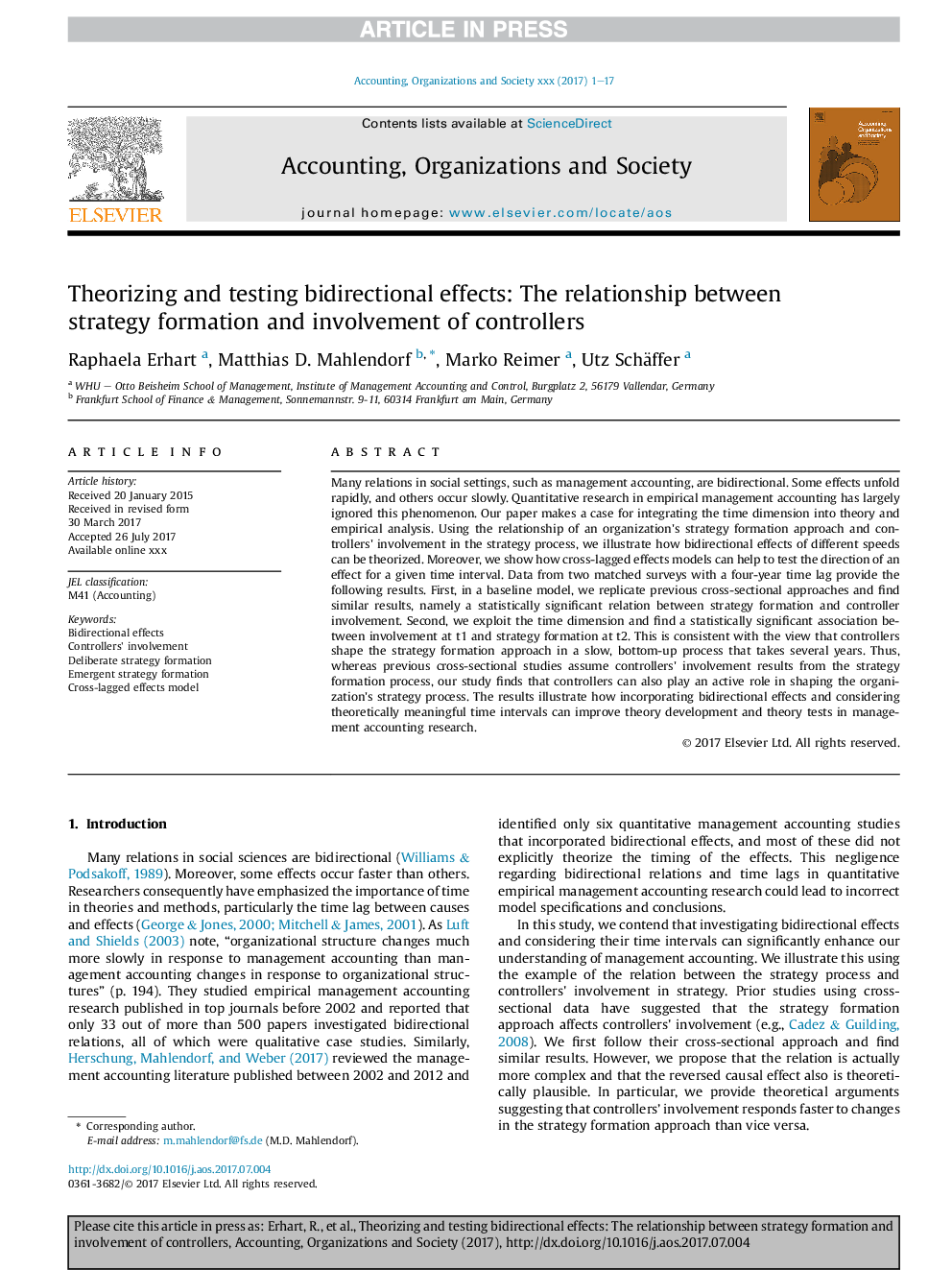| Article ID | Journal | Published Year | Pages | File Type |
|---|---|---|---|---|
| 5033272 | Accounting, Organizations and Society | 2017 | 17 Pages |
Abstract
Many relations in social settings, such as management accounting, are bidirectional. Some effects unfold rapidly, and others occur slowly. Quantitative research in empirical management accounting has largely ignored this phenomenon. Our paper makes a case for integrating the time dimension into theory and empirical analysis. Using the relationship of an organization's strategy formation approach and controllers' involvement in the strategy process, we illustrate how bidirectional effects of different speeds can be theorized. Moreover, we show how cross-lagged effects models can help to test the direction of an effect for a given time interval. Data from two matched surveys with a four-year time lag provide the following results. First, in a baseline model, we replicate previous cross-sectional approaches and find similar results, namely a statistically significant relation between strategy formation and controller involvement. Second, we exploit the time dimension and find a statistically significant association between involvement at t1 and strategy formation at t2. This is consistent with the view that controllers shape the strategy formation approach in a slow, bottom-up process that takes several years. Thus, whereas previous cross-sectional studies assume controllers' involvement results from the strategy formation process, our study finds that controllers can also play an active role in shaping the organization's strategy process. The results illustrate how incorporating bidirectional effects and considering theoretically meaningful time intervals can improve theory development and theory tests in management accounting research.
Keywords
Related Topics
Social Sciences and Humanities
Business, Management and Accounting
Accounting
Authors
Raphaela Erhart, Matthias D. Mahlendorf, Marko Reimer, Utz Schäffer,
